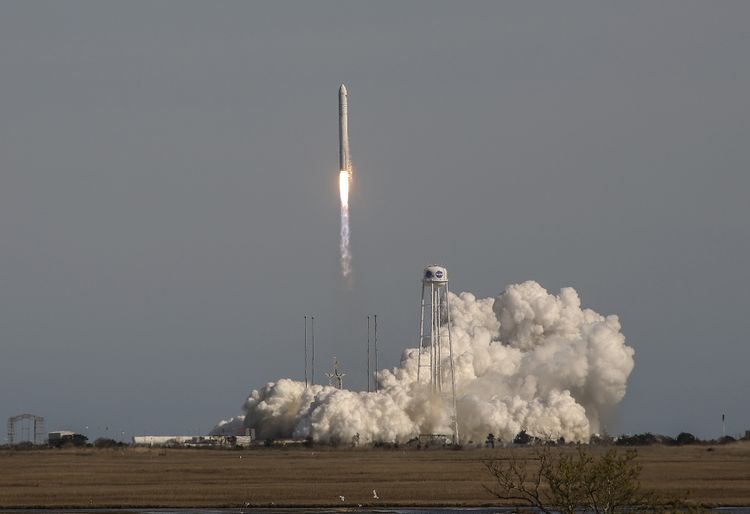Firefly Aerospace to Develop First Stage for Northrop’s Antares Rocket

Northrop Grumman’s Antares rocket launched the Cygnus spacecraft carrying to the International Space Station on April 17, 2019. Photo: Northrop Grumman
Northrop Grumman has teamed up with Firefly Aerospace to provide an American-built first-stage upgrade for the Antares rocket and a new medium-lift launch vehicle to serve commercial, civil, and national security space launch markets. The two companies announced the collaboration Aug. 8.
The 200 series of the Antares rocket, developed Orbital Sciences Corporation, now part of Northrop Grumman, used Russian-made RD-181 main engines. Its most recent launch was in February to the ISS. This new collaboration with Firefly will provide American-built engines, replacing the RD-181 engines.
Firefly’s propulsion technology utilizes the same propellants as the current Antares rocket, which the two companies believe minimizes launch site upgrades. The Antares 330 will utilize seven of Firefly’s Miranda engines and leverage its composites technology for the first stage structures and tanks, while Northrop Grumman provides its avionics and software, upper-stage structures and Castor 30XL motor, as well as vehicle integration and launch pad operations. This new stage will also increase Antares mass to orbit capability.
“Through our collaboration, we will first develop a fully domestic version of our Antares rocket, the Antares 330, for Cygnus space station commercial resupply services, followed by an entirely new medium class launch vehicle. Northrop Grumman and Firefly have been working on a combined strategy and technical development plan to meet current and future launch requirements,” Scott Lehr, vice president and general manager, launch and missile defense systems, Northrop Grumman, said in a statement.